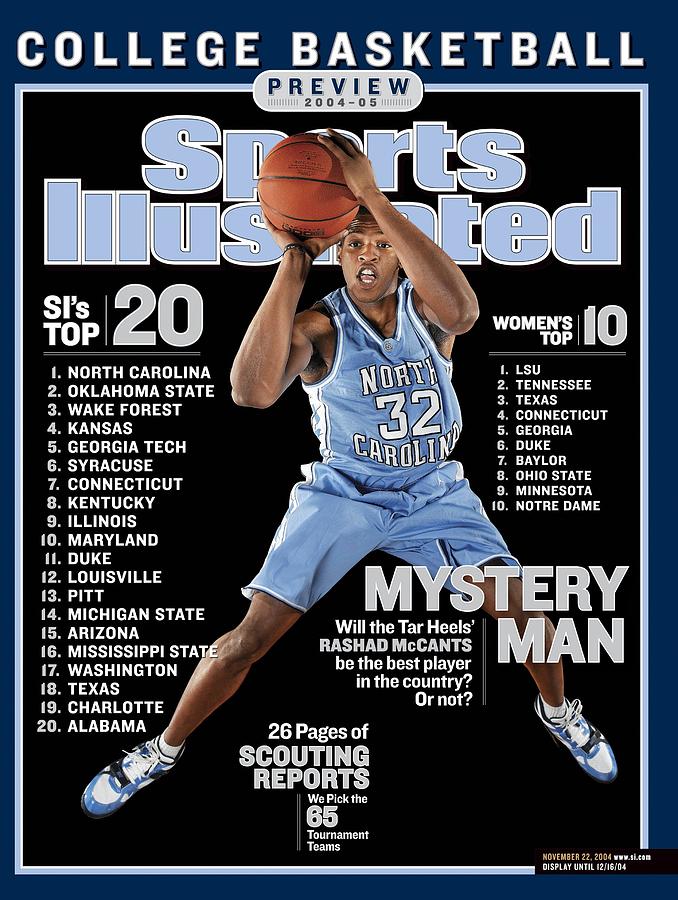Could a celebrated college basketball career be tainted by claims of academic fraud? Rashad McCants, a name etched in the annals of North Carolina Tar Heels basketball, finds himself at the center of a narrative that challenges the very foundation of his athletic success.
The echoes of the 2004-05 national championship season reverberate not only with triumph but also with whispers of scandal. McCants, a key player on that victorious team, made a startling revelation years later, alleging that he received fraudulent academic assistance, raising serious questions about his eligibility and the integrity of the program. This isn't just about missed classes or low grades; it's a challenge to the authenticity of a hard-won championship and the legacy of a player once destined for NBA stardom.
The digital footprint of Rashad McCants is extensive, from his active presence on Instagram, under the handle @iamrashadmccants, to his pronouncements on X, formerly Twitter, where he operates as @SoundbiteKing. His social media feeds offer glimpses into his current life, punctuated by promotional endeavors and pronouncements on basketball and life, giving the public a look at his multifaceted life post-basketball career. These platforms provide real-time insights into his thoughts and activities, serving as a window into his world and his perspectives.
The weight of expectations and the allure of potential often cast a long shadow. McCants, a highly-touted prospect, entered the NBA with significant promise. However, his professional journey didn't quite mirror the collegiate success he achieved. Though he showcased moments of brilliance, his NBA career never fully blossomed, leaving many to ponder what could have been.
The debate surrounding Rashad McCants is complex, involving accusations of academic misconduct and a career that didn't match early promise. His story challenges fans to reassess narratives and consider the complexities that can undermine the most spectacular achievements.
In the realm of sports, legends are often solidified by on-court exploits. But the Rashad McCants saga reminds us that true legacy extends beyond the game, encompassing integrity, accountability, and the ongoing pursuit of truth.
McCants' athletic career at North Carolina serves as a foundation for his NBA journey. The former Tar Heel guard's time at the University of North Carolina, including his role in the 2004-2005 national championship team, established his reputation as a skilled scorer, which caught the attention of the Minnesota Timberwolves, who drafted him in the first round. He averaged 16.9 points and 4.8 rebounds per game during his sophomore year, before moving on to the NBA. His draft position highlighted his immediate potential and confirmed the high expectations he faced moving forward. This marked the transition to the professional league, where he aimed to cement his legacy on a bigger stage.
McCants' post-playing career has taken several turns, demonstrating a multifaceted approach to life after basketball. His engagement on social media, as @iamrashadmccants and @SoundbiteKing, reveals his interest in a variety of activities, including media appearances. His online presence has become a platform where he comments on current events, including sports, and interacts with his fans and followers. In addition to his online persona, McCants has been involved in media ventures, further showcasing his entrepreneurial spirit and diversifying his career portfolio beyond sports.
The essence of McCants' situation also lies in the allegations concerning his eligibility. His claims of academic fraud have called into question the legitimacy of his participation on the 2004-05 championship team, generating significant debate. These charges have reignited discussion on the responsibilities of universities in supporting their athletes' academic achievement and the implications of any misconduct. The accusations have prompted critical scrutiny of both the player and the university, highlighting the significance of maintaining the integrity of collegiate sports.
The narrative surrounding McCants, including his playing career and the subsequent controversies, is a reminder of the multifaceted nature of sports legacies. His story provides a glimpse of the complexities athletes face, from the weight of public expectations to the lasting impact of any controversy. This analysis underscores the need to evaluate an athlete's complete narrative, which is beyond the game. In turn, it encourages a deeper understanding of the human element, which underscores success and failure.
Here's a table summarizing key information about Rashad McCants:
| Category | Details |
|---|---|
| Full Name | Rashad Jamaal McCants |
| Date of Birth | August 19, 1984 |
| Place of Birth | Asheville, North Carolina, USA |
| Height | 6 ft 4 in (1.93 m) |
| Weight | 207 lb (94 kg) |
| High School | Erwin High School, Asheville, NC |
| College | University of North Carolina at Chapel Hill |
| College Position | Guard |
| NBA Draft | 2005, Minnesota Timberwolves (1st Round, 14th overall) |
| NBA Teams | Minnesota Timberwolves, Sacramento Kings |
| Notable Achievements |
|
| Current Activities | Media personality, social media presence |
| Website | Rashad McCants Instagram |
Rashad McCants' trajectory is complex, incorporating a brilliant collegiate career at the University of North Carolina, a stint in the NBA, and a life beyond the sport. His claims of academic fraud and subsequent career paths provide an introspective look at how an athlete's achievements are assessed, and the influence that academic integrity has on a legacy. The evolution of McCants, both on and off the court, is a compelling study of personal growth, social media, and the many layers that define human existence.
The scandal surrounding Rashad McCants casts a long shadow over the North Carolina basketball program. His allegations of academic fraud have provoked debates about the university's responsibility for athlete academic support. This controversy raised questions about how the Tar Heels' success was obtained, prompting investigations and public discussion.
McCants' narrative extends past his career. His comments on social media, like his online handles, provide a look into his current beliefs and activities. His presence on platforms like Instagram and X reveals his perspectives on sports, culture, and other topics, encouraging debate among followers. McCants' willingness to participate in public discourse also helps shape his legacy, presenting a multi-faceted narrative of a man who has navigated success and failure.
McCants' experience reminds us that success isn't always linear, and the road to stardom can be winding and full of difficulties. His experience emphasizes the importance of integrity in sports and the lasting effects of controversies on an athlete's reputation and the program.
The debate surrounding Rashad McCants is more than just a reflection of the man. It is a wider commentary on the nature of sports legacies, academic integrity, and the complexities of modern athletes. It is a reminder of the human aspect, challenging the audience to reconsider the narratives that shape its knowledge of these notable figures.
McCants' journey serves as a cautionary tale, highlighting the potential repercussions of academic wrongdoing and the importance of upholding the core values of higher education. His comments have also prompted important discussions about the challenges student-athletes face, and the responsibilities of the institutions that support them. This ongoing discourse will help sports organizations improve athlete support and promote academic integrity.
The story of Rashad McCants is a blend of athletic greatness and personal challenges. From his early days as a highly sought-after high school player to his role on the championship-winning North Carolina team, he seemed destined for NBA fame. However, allegations of academic fraud have muddied his legacy. His ability to navigate the complexities of public life, the constant scrutiny, and the task of reevaluating his place in the basketball world, demonstrates his resilience. His continued public engagement offers valuable lessons on identity, integrity, and the importance of resilience in the face of adversity.



